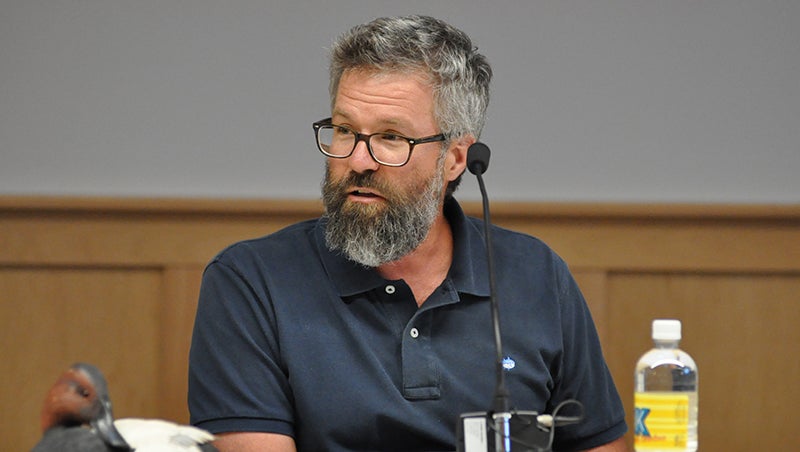Duck Planning Board reviews town board guidelines
Published 10:38 am Saturday, July 29, 2023
|
Getting your Trinity Audio player ready...
|
Duck Planning Board members spent a majority of their Wednesday, July 12 regular session meeting time discussing draft proposals for changes to wireless telecommunication facilities and town board guidelines.
During recent text amendment reviews, it was determined that there are several sections of town code that need updating in order to close unintended loopholes or, in other cases, better address issues that have come to staff’s attention. To that end, town attorney Robert Hobbs drafted some recommended amendment changes.
To resolve a telecommunication discrepancy, board members voted to recommend the Duck Town Code Permitted and Prohibited Use Table be amended to include “stealth antennas” and “wireless telecommunication facilities.” Both are permitted uses by administrative approval in most zoning districts but require a special use permit in single-family residential (RS-1 and RS-2) districts. Also, town code should be amended to clarify that new utility poles supporting wireless telecommunication facilities can be as tall as 50 feet in height outside of single-family residential zoning districts.
Another recommended change is authorizing the Board of Adjustment to grant continuances and adopt rules of procedure.
According to community development director Joe Heard, there could be times an applicant might be better served to request a continuance. Primarily with the unavailability of a key witness or in the absence of a full slate of voting board members.
North Carolina law allows board continuances in certain situations, but town standards creating the Duck Board of Adjustment and assigning its powers and duties do not specifically state that authority. To prevent any future concerns or legal challenges about this authority, ordinance 23-09 clearly spells it out with sections for continuances and designating who is responsible for the administrative costs of notices. There is also a section for adopting rules of procedure.
After careful consideration, planning board members voted to recommend council approve those changes.
Also discussed was recommended town code changes to sections dealing with the planning board.
Most of those amendments are simply items moved from the former by-laws into town code in order to provide a more comprehensive description of the planning board and its duties. Rules of procedure are aimed at streamlining how the board conducts its internal decision-making procedures.
Other changes include adding a general purpose, updated list of officers, duties for each board officer and a general meeting schedule outline with cancellation and notice requirements. It also adds a requirement board members be full-time residents.
One significant recommended planning board change is to remove it from the special use permits approval process.
Because special use permits require town council to conduct a quasi-judicial hearing prior to making a decision on an application, having the planning board to conduct a review opens the door for potential legal risks.
In part, council makes a decision after an evidentiary public hearing in which all witnesses giving testimony are placed under oath while application information presented during planning board meetings are not under any oath to be true. Another concern is that council votes could be seen as a rubber stamp of a planning board decision and offered without due consideration.
After review, legal counsel concluded that it would be a better practice to remove planning board review from the special use permit application process.
Each of the recommendations reviewed will now go to council for a final vote.
SUBSCRIBE TO THE COASTLAND TIMES TODAY!







